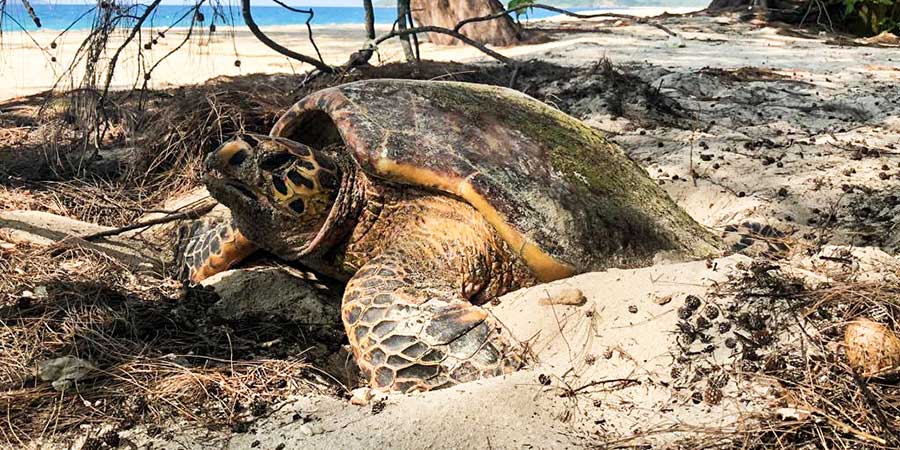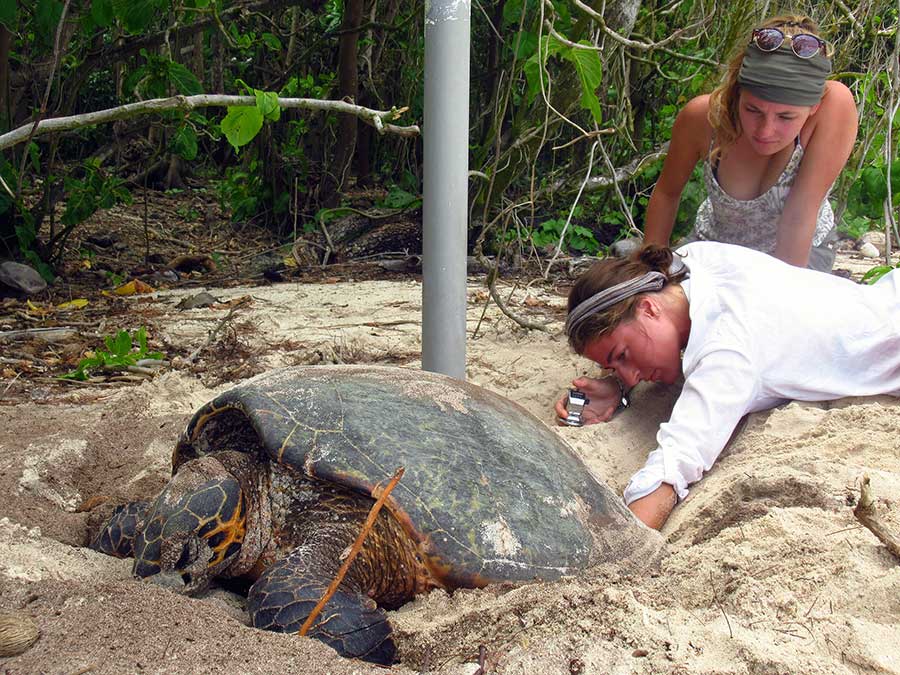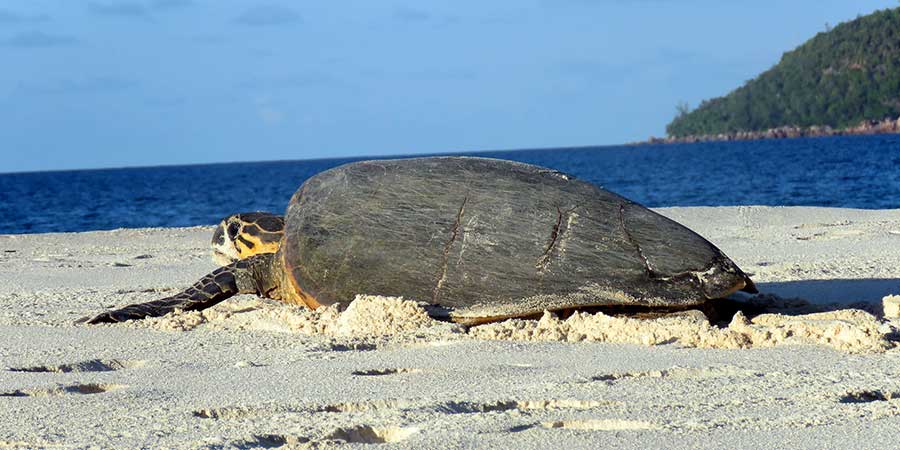
I grew up in Darwin, a small coastal town on Australia’s North Coast. My parents had an ecotourism business called Sea Darwin, with the niche being Flatback turtle tours on a remote island in the Arafura Sea. I had been exposed to the nesting behaviours of Flatbacks for nearly 10 years, and that’s where my interest in sea turtles started.
In August 2018, I left tropical Darwin and headed for Europe, where I spent three months before the winter set in. That’s when I decided I needed to defrost, and given my love for sea turtles, I researched turtle conservation in Mauritius because my mother always spoke of it; she had never been but it sounded interesting to her. Nature Seychelles was one of the Google results, specifically their Conservation Boot Camp (CBC) program. I read about the Hawksbill turtle monitoring work they do on Cousin Island Special Reserve and this is how I found myself in Seychelles in November 2018.

Although I loved turtles already, my month on Cousin made me more passionate and attached to these creatures. It takes close encounters with them to realise how special they are. I found myself getting protective of them. I think after watching so many turtles lay you understand what a stressful time it is for them, but also the amount of effort they put in every nest. From emerging up the beach, digging the egg chamber, laying between 60-250 eggs and then covering the nest, these mothers are some of the toughest in the ocean.
I’m not going to lie, it was challenging at times. During peak turtle season you might get the 6am shift and then will work throughout the day until the last girl lays. It can be hard to wake up in the mornings, but once you’re with a turtle it’s all worth it. 6am shifts were my favourite, because that’s the coolest time of the day, there are no mosquitoes, and you have the beach all to yourself. Often, you get the late starters that choose to dig their nest at sundown. It is special to witness this with pastel colours in the background, but soon after dark the mosquitoes ambush you, and it’s a struggle to remain cool, calm, and collected whilst collecting turtle data. Luckily, I was with a team of people that did not complain and carried on happily.

The program provides a great first insight into sea turtle conservation. It communicates the importance of data collection in determining nesting patterns and Hawksbill populations. Of course, the days aren’t just about turtles, you also have the census for other species such as the seabirds and tortoises, beach profiling, Seychelles magpie robin monitoring, and other activities. There is also abundant time to do things you love. Spare time was spent snorkelling and swimming.
An important subject the CBC highlights is marine pollution. It’s expected that marine debris washed up on the beach are collected, sorted and disposed of appropriately. Unfortunately, even such a pristine part of the world such as the Seychelles continues to collect plastics on the beaches. And even though people don’t like to see rubbish on beaches, I think it’s something that we as humans need to take responsibility for, as we’re creating a world that animals cannot function in.
I highly recommend the CBC. Come to Cousin, be with turtles, fall in love with wildlife, and let that influence the way you live your life. Be considerate, don’t litter and don’t exploit.
Georgia Smith participated in Nature Seychelles’ Conservation Boot Camp, which equips young people with in-the-field conservation skills. Cousin Island Special Reserve is the most important nesting site for Hawskbill in the Western Indian Ocean. Learn more on natureseychelles.org

